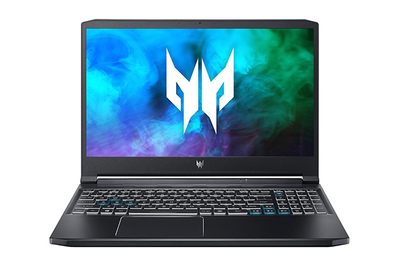Gaming laptops can be used for machine learning, offering powerful hardware and graphics capabilities that are beneficial for AI projects. With their advanced GPUs and high-performance processors, gaming laptops provide the necessary resources to handle complex machine learning tasks effectively.
Gaming laptops have gained popularity for their high-performance capabilities, making them sought after not only by gamers but also by individuals in fields like machine learning. Machine learning requires significant computational power to handle complex data processing and AI algorithms.
As a result, many professionals wonder if gaming laptops are suitable for machine learning tasks. We will explore whether gaming laptops are good for machine learning and discuss the benefits they offer for AI projects. Additionally, we will delve into the hardware requirements to consider when choosing a gaming laptop for machine learning purposes. So, let’s dive in and explore the world of gaming laptops and their compatibility with machine learning tasks.

Understanding The Role Of Hardware In Machine Learning
The Importance of Hardware for Machine Learning
When it comes to machine learning, the role of hardware cannot be overstated. The hardware components of a computer have a significant impact on the performance and efficiency of machine learning algorithms. Having the right hardware can greatly enhance the speed and accuracy of these complex computations, ultimately leading to better results.
Impact of Hardware on Performance
In machine learning, the performance of algorithms depends heavily on the hardware they run on. The choice of hardware can determine how quickly the algorithms can process and analyze large datasets, as well as how efficiently they can train models. This is particularly important in tasks that involve deep learning and neural networks, which are computationally intensive and require substantial computational power.
The hardware components that play a crucial role in machine learning include the processor, graphics processing unit (GPU), memory, and storage. Let’s take a closer look at each of these components and understand their significance in machine learning:
1. Processor: The processor, also known as the central processing unit (CPU), is responsible for executing instructions and performing calculations. In machine learning, a powerful CPU can handle complex mathematical operations more efficiently, resulting in faster computations. Processors with higher core counts and clock speeds are preferred for machine learning tasks.
2. Graphics Processing Unit (GPU): GPUs are specialized hardware units designed to accelerate the processing of data and perform parallel computations. They excel at handling tasks with large amounts of data, making them perfect for machine learning applications. GPUs are particularly beneficial for training deep learning models, as they can significantly speed up the process and improve overall performance.
3. Memory (RAM): Memory plays a vital role in machine learning, as it holds the data that the algorithms need to process. Having an ample amount of RAM allows the algorithms to access and manipulate data quickly, which can greatly enhance the efficiency of machine learning tasks. It’s important to have enough memory to accommodate the size of the datasets and models used in machine learning.
4. Storage: The storage capacity and speed are essential considerations for machine learning. Large datasets and models require significant storage space, and having fast storage can ensure quick access to the necessary data. Solid-state drives (SSDs) are often preferred over traditional hard disk drives (HDDs) due to their faster read and write speeds.
In conclusion, the hardware components of a computer play a critical role in machine learning. A combination of a powerful CPU, GPU acceleration, sufficient memory, and fast storage can significantly improve the performance and efficiency of machine learning algorithms. Investing in the right hardware is essential for anyone involved in machine learning tasks and can help achieve better results in less time.
Technical Considerations For Machine Learning On Gaming Laptops
Gaming laptops have become increasingly popular among machine learning enthusiasts due to their powerful hardware capabilities. While gaming laptops are primarily designed for gaming, they can also be used for machine learning tasks. However, there are certain technical considerations that need to be taken into account when using gaming laptops for machine learning.
GPU Capabilities and Requirements
The graphics processing unit (GPU) plays a crucial role in machine learning tasks. When it comes to gaming laptops, it is important to ensure that the GPU has sufficient capabilities and meets the requirements for machine learning. Machine learning often involves complex computations and training of large neural networks, which require a high-performance GPU.
When selecting a gaming laptop for machine learning, it is recommended to look for laptops with dedicated GPUs, preferably from the NVIDIA GeForce RTX series. These GPUs are specifically designed for machine learning tasks and offer excellent performance for deep learning algorithms.
RAM and Storage Considerations
In addition to a powerful GPU, having sufficient random access memory (RAM) and storage is essential for machine learning tasks. Machine learning models often require a large amount of memory to process and store data. Therefore, it is crucial to choose a gaming laptop with an ample amount of RAM.
For machine learning purposes, it is recommended to have at least 16GB of RAM, but higher configurations, such as 32GB or even 64GB, are desirable for more demanding tasks. Additionally, opting for a laptop with fast and spacious storage, such as a solid-state drive (SSD), can greatly improve the overall performance and speed of data processing.
Cooling System and Thermal Management
Machine learning tasks can put a significant load on the hardware, resulting in increased heat generation. Therefore, having a robust cooling system and efficient thermal management is crucial for gaming laptops used for machine learning. Without proper cooling, excessive heat can lead to performance throttling and potential damage to the components.
Gaming laptops with advanced cooling systems, such as multiple fans, heat pipes, and effective ventilation, are highly recommended for machine learning tasks. These cooling mechanisms help dissipate heat efficiently, ensuring that the laptop maintains optimal performance even during intensive computing tasks.
| Technical Considerations for Machine Learning on Gaming Laptops |
|---|
| – Select a gaming laptop with a powerful and high-performance GPU, preferably from the NVIDIA GeForce RTX series. |
| – Ensure the laptop has ample RAM, with a minimum of 16GB, for efficient data processing and storage. |
| – Opt for a gaming laptop with fast and spacious storage, such as an SSD, to enhance overall performance. |
| – Choose a laptop with a robust cooling system and efficient thermal management to prevent overheating and maintain optimal performance. |
By considering these technical considerations, you can effectively use gaming laptops for machine learning tasks. Their powerful hardware capabilities, coupled with the right specifications, can provide an excellent platform for running complex machine learning algorithms and training deep neural networks.
Pros And Cons Of Using Gaming Laptops For Machine Learning
Gaming laptops have become increasingly popular among machine learning enthusiasts due to their powerful hardware and high-performance capabilities. However, like any technology, there are pros and cons to consider when using gaming laptops for machine learning purposes. In this section, we will explore the advantages and limitations of using gaming laptops in the context of machine learning.
Advantages of Gaming Laptops for Machine Learning
When it comes to machine learning, gaming laptops offer several advantages that make them a viable option for enthusiasts and professionals alike. Here are some key advantages:
- Powerful Graphics Processing Unit (GPU): Gaming laptops are equipped with high-end GPUs that are crucial for accelerating machine learning tasks. These GPUs are specifically designed to handle complex calculations and processes, making them ideal for training deep neural networks and handling large datasets.
- Portability: Unlike desktop computers, gaming laptops are portable and can be taken to different locations. This allows machine learning practitioners to work on their projects while on the go, providing flexibility and convenience.
- Availability of Resources: Gaming laptops have a wide range of compatible software and tools readily available for machine learning purposes. This means that users can easily find and utilize the necessary resources for their projects without facing compatibility issues.
- Cost-effectiveness: While gaming laptops may have a higher initial cost compared to desktop computers, they are often more cost-effective in the long run. This is because they combine the functionalities of a gaming device and a machine learning workstation, eliminating the need for separate devices and reducing overall costs.
Limitations and Drawbacks
Despite the advantages they offer, gaming laptops for machine learning also come with certain limitations and drawbacks that should be taken into consideration. Here are the key limitations:
- Thermal Constraints: Gaming laptops tend to generate a significant amount of heat due to the powerful hardware they house. This can lead to thermal throttling, which reduces the performance of the GPU when it reaches high temperatures. Proper cooling solutions and optimization techniques are essential to overcome this limitation.
- Battery Life: The energy consumption of gaming laptops is considerably higher compared to regular laptops, primarily due to the power-hungry GPUs. This results in shorter battery life, which can be problematic when working on machine learning tasks without access to a power source.
- Upgradability: Unlike desktop computers, gaming laptops have limited upgradability options. In most cases, the GPU and CPU cannot be replaced or upgraded, which means that users are stuck with the hardware configuration they initially purchased. This could potentially limit the scalability and future-proofing of the machine learning setup.
- Weight and Size: Gaming laptops are typically heavier and bulkier compared to regular laptops. This can make them less convenient for traveling or carrying around for extended periods. However, advancements in technology have allowed for the development of slimmer and lighter gaming laptops in recent years.
Considering these advantages and limitations, it is important to carefully evaluate your specific requirements and budget before deciding to use a gaming laptop for machine learning purposes. While gaming laptops offer powerful hardware and portability, they may not be the best choice for everyone. Ultimately, the decision should be based on your individual needs and priorities.
Recommended Gaming Laptops For Machine Learning
Are you a data scientist, researcher, or developer seeking a powerful and efficient laptop for your AI and machine learning projects? Look no further! Gaming laptops, with their robust specifications and high-performance capabilities, can be an excellent choice for machine learning tasks. In this article, we will explore some of the top gaming laptops that are ideal for machine learning. Whether you require a laptop with cutting-edge specifications or are on a budget, we have got you covered!
Top Gaming Laptops with Suitable Specifications
For machine learning, it is crucial to have a laptop that can handle the computational requirements of complex algorithms and large datasets. Here are some gaming laptops that offer suitable specifications for machine learning:
- ASUS ROG Zephyrus G14: This gaming laptop boasts an AMD Ryzen 9 processor and NVIDIA GeForce RTX 2060 graphics card, making it perfect for machine learning tasks. The laptop also features high-speed SSD storage and a vibrant 14-inch display, ensuring smooth performance and crisp visuals.
- Lenovo Legion Y740: Equipped with an Intel Core i7 processor and NVIDIA GeForce RTX 2070 graphics card, this laptop provides excellent performance for machine learning. With its 15.6-inch display and Thunderbolt 3 ports, it offers a perfect balance between power and portability.
- MSI GS66 Stealth: With its Intel Core i9 processor and NVIDIA GeForce RTX 3080 graphics card, this gaming laptop is a beast when it comes to machine learning. The laptop also features a 15.6-inch display with a high refresh rate and ample storage options, ensuring a seamless experience for data-intensive tasks.
Budget-Friendly Options for Students and Beginners
If you are a student or beginner in the world of machine learning, you may be looking for budget-friendly options that still offer decent performance. Fortunately, there are gaming laptops available that strike a balance between affordability and functionality:
- Acer Nitro 5: This budget gaming laptop comes with an AMD Ryzen 5 processor and NVIDIA GeForce GTX 1650 graphics card, making it a suitable choice for entry-level machine learning tasks. It also features a 15.6-inch display and ample storage, providing a value-for-money proposition.
- HP Pavilion Gaming Laptop: With its Intel Core i5 processor and NVIDIA GeForce GTX 1650 graphics card, this laptop offers decent performance for students and beginners in machine learning. Its 15.6-inch display and ergonomic keyboard layout make it a comfortable choice for long hours of coding and analysis.
- Dell G3 15: Designed for affordability without compromising on performance, this gaming laptop features an Intel Core i5 processor and NVIDIA GeForce GTX 1660 Ti graphics card. Its 15.6-inch display and reliable build quality make it a suitable option for students and beginners venturing into machine learning.
These gaming laptops provide a great starting point for your machine learning endeavors, offering the necessary specifications at varying price points. Remember, it is essential to choose a laptop that aligns with your processing and storage requirements, ensuring an optimal experience throughout your machine learning journey.
Best Practices for Optimizing Machine Learning Performance on Gaming Laptops
Software and Driver Updates
Regular software and driver updates play a crucial role in ensuring optimal performance for machine learning on gaming laptops. It is important to keep your machine learning software, such as TensorFlow or PyTorch, up to date to leverage the latest features and improvements. Additionally, updating your graphics card driver can enhance GPU performance, which is essential for training and inference tasks.
Overclocking and Performance Tweaking
Overclocking and performance tweaking can significantly improve machine learning performance on gaming laptops. By overclocking your GPU, you can achieve higher clock speeds and increase computational power for training complex models. However, it is important to proceed with caution as overclocking can generate more heat, potentially reducing the lifespan of your hardware. Make sure to monitor temperatures and adjust fan settings when tweaking the performance of your gaming laptop for machine learning.
Data Management and Sustainability
Data management and sustainability are crucial aspects of optimizing machine learning performance on gaming laptops. Efficient data management involves organizing and storing your datasets in a way that minimizes access time and maximizes processing speed. Consider techniques such as data compression, partitioning, and parallel processing to streamline the data handling process. Sustainability focuses on long-term performance and scalability. Designing algorithms and models that utilize resources efficiently will ensure your machine learning tasks can be sustained over time without compromising performance.
Frequently Asked Questions On Are Gaming Laptops Good For Machine Learning?
Can A Gaming Laptop Be Used For Machine Learning?
Yes, a gaming laptop can be used for machine learning.
Are Gaming Laptops Good For Artificial Intelligence?
Gaming laptops can be good for artificial intelligence tasks like machine learning. They offer powerful hardware and graphics capabilities needed for AI applications.
Are Gaming Laptops Good For Data Science?
Gaming laptops can be good for data science due to their powerful processors and graphics cards. They can handle complex computations and simulations needed for data analysis.
Which Laptop Should I Buy For Machine Learning?
For machine learning, I recommend a gaming laptop. These laptops provide the performance needed for AI projects.
Conclusion
When it comes to machine learning, gaming laptops can be a good choice due to their powerful graphics processing units (GPUs) and high-performance processors. These laptops offer the necessary processing power and speed required for complex machine learning algorithms. Moreover, gaming laptops often have excellent cooling systems to prevent overheating during extensive training sessions.
However, it is essential to consider other factors such as memory, storage, and software compatibility when selecting a gaming laptop for machine learning tasks. Overall, gaming laptops can be a reliable option for individuals interested in machine learning projects.




